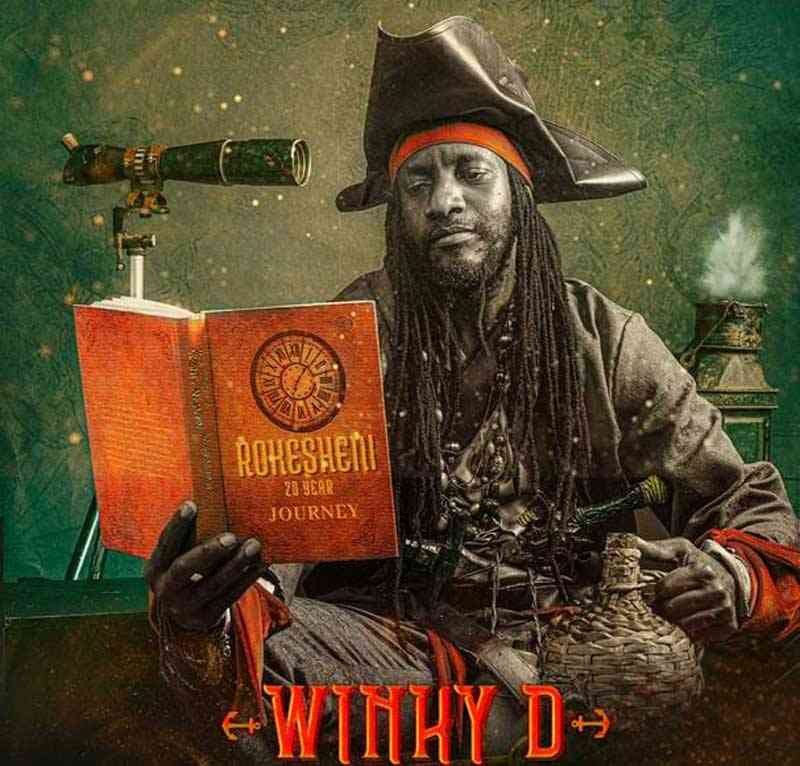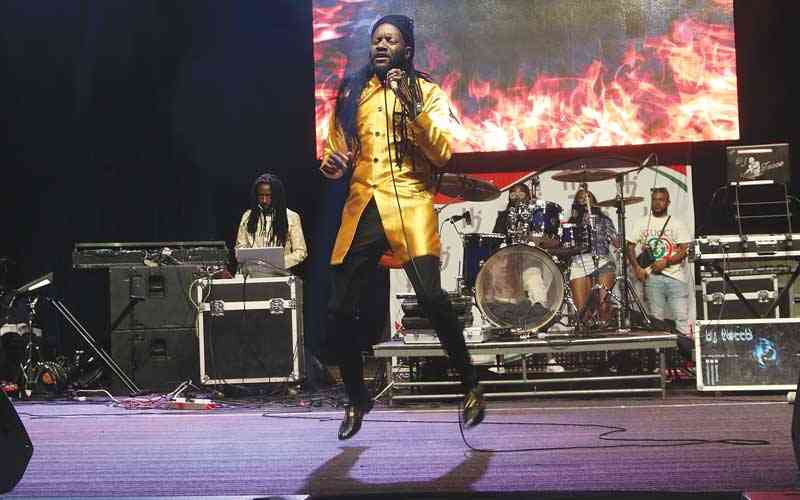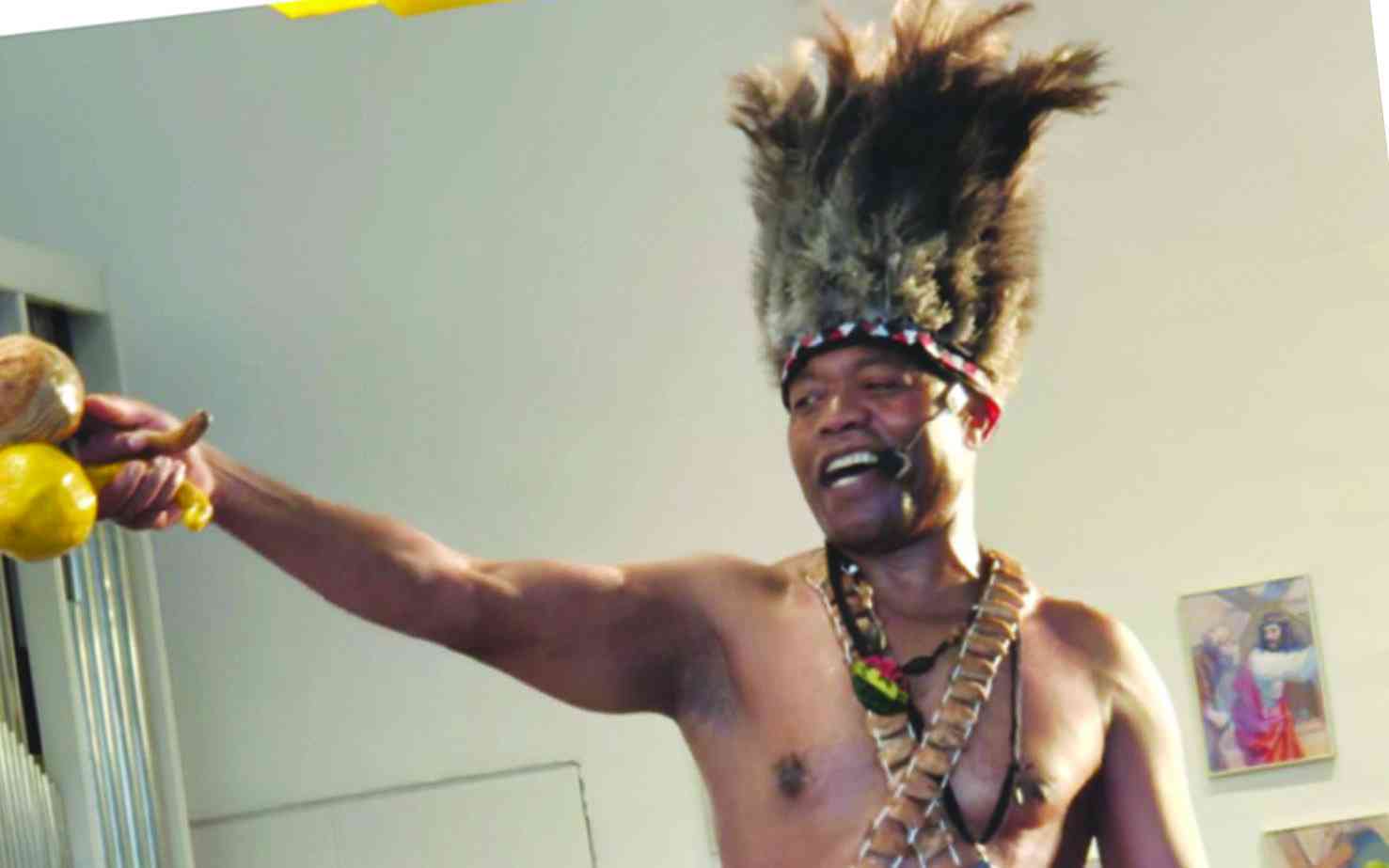
IT became a hot social media trend in the first week of this month when multi-award-winning dancehall musician Winky D posted a two-minute video announcing that he would be holding a show on the last day of 2023 and releasing a new album Ghettocracy Score: Reading through the Pages of Rokesheni at what has become his home ground, Harare International Conference Centre (HICC).
The announcement at some point overshadowed the inexorable politically charged discussions that have rocked Zimbabwe’s social media for quite some time now.
However, that was not to mean that Winky D, born Wallace Chirumiko, was not a subject of political debate himself.

He has produced songs that have been deemed to be politically charged, and at some point, was a victim of political bullying at his shows.
If at all, some circles have tried to paint the musician with political colours, and if one must be honest, the year 2023 was probably the most bitter-sweet for the Kambuzuma-born musician.
Like every other Zimbabwean musician in general, Winky D has always composed songs that have social commentary which, in some instances, borders on the political and economic crises the country has experienced over the years.
It was his last album Eureka Eureka released on December 31, 2022, that received the most attention, and here are some of the reasons.
It has always been clear that under President Emmerson Mnangagwa’s establishment, Zimbabwe has experienced a significant shrinking of democratic space with alternative voices being on the receiving end of the regime.
- Chamisa under fire over US$120K donation
- Mavhunga puts DeMbare into Chibuku quarterfinals
- Pension funds bet on Cabora Bassa oilfields
- Councils defy govt fire tender directive
Keep Reading
So, when Winky D released Eureka Eureka, an album that had songs like Ibotso featuring hip-hop sensation Holy Ten, Vafarisi, Dzimba Dzemabwe, featuring United Kingdom-based Shingai Shoniwa, Chauruka featuring Tocky Vibes, Dreams featuring Saint Floew, Peter Friend featuring Nutty O, Urere featuring Killer T and Shaker featuring Enzo Ishall, among others, whose part of the lyrics questioned if the social, political and economic developments in the country where what our forefathers went to war for, it sounded like a direct attack on the regime.
Yet it was just commentary similar to his earlier songs like Dzika Ngirozi and Ijipita, which spoke of the social upheavals which saw millions of Zimbabweans emigrating in search of better economic fortunes.
Of course, the regime’s response to the album was not new. We could say Winky D had reached a Zora musician Leonard Zhakata or self-exiled Chimurenga singer Thomas Mapfumo moment.
The two musicians were hounded by the regime when their albums were deemed to be against the establishment.
Mapfumo had to flee into exile after his 1999 production, Chimurenga Explosion, in which he concluded in the song, Mamvemve, that the country had degenerated into tatters.
Zhakata remained in the country after producing Mubikira in 2001 and Hodho in 2003, but he faced intense victimisation to the extent that his songs did not receive any airplay on what is supposed to be national radio.
It took years for Zhakata to recover from that, but perhaps for Winky D, the fact that radio stations did not play some of his songs and that some State media columnist made futile attempts to write negatively about the musician, was of little effect in the world of social media and online music platforms.
The last reason behind the crackdown and deliberate attacks on Winky D was that on each of the songs on the Eureka Eureka album, Winky D collaborated with different artistes across genres, and in the regime’s reasoning, or lack of it, these collaborations could have been seen as an attempt to rally musicians against the government, especially considering that 2023 was an election year.
To his credit, Winky D maintained stone silence during these attacks and rightfully so because just like any other artiste, one’s music should speak louder and be open to different interpretations.
Even as he went on to win international awards, like the Best Reggae/Dancehall Artiste against heavyweights such Jamaican reggae dancehall musicians Buju Banton and Popcaan as well as Ghanaian reggae dancehall singer Shatta Wale at this year’s edition of the Annual African Entertainment Awards, US held in November at Newark Symphony Hall, Winky D did not use that opportunity to say anything beyond thanking his fans for the support.
If there was to be any award for musical fans, it would surely go to Winky D’s crowd, which put quite a strong fight in the corner of the musician on social media and by attending shows despite attempts by “police” early this year to disrupt a show in Chitungwiza.
So, as the new album Ghettocracy Score: Reading Through the Pages of Rokesheni, to be launched tomorrow amid the usual secrecy that surrounds Winky D’s productions, a few questions, a lot of expectations and so much hype remain.
At the launch, a partnership with Gateway Stream, a local entertainment company which is a subsidiary of Rainbow Tourism Group, Winky D will be supported by urban groover ExQ, dancehall chanters Killer T, Tocky Vibes, Master H, Bazooker and Bling 4.
To attend the launch, fans must pay US$20 for the standard ticket and US$50 for the VIP access one.
Winky D’s last album was an evolution from the usual albums the musician produced over years, and this was because each artiste who partnered with him influenced a unique and new style.
It remains a mystery if there are to be more or less of this kind of teamwork considering that the Gaffa hitmaker has always been his own man, choosing collaborations carefully.
With the fans eagerly waiting for the new album, could this be a return to the old style of music that Winky D played in his earlier days in the ghetto streets of his earlier Kambuzuma hood where he started his career?
The hype that Winky D the brand has created has brought him new fans and enemies of course, and that alone creates a predicament, because right now, there are some millions of people waiting to share their negative or positive opinions on the new album.
Others could just be lingering in the shadows, ready to extend their suppressive hand in case they feel the album has some politics in its lyrics.
Either way, tomorrow, the HICC and perhaps, 2024 belong to Winky D, and his brand can only get better and just as Phil Collins sang, We wait, and we Wonder.










